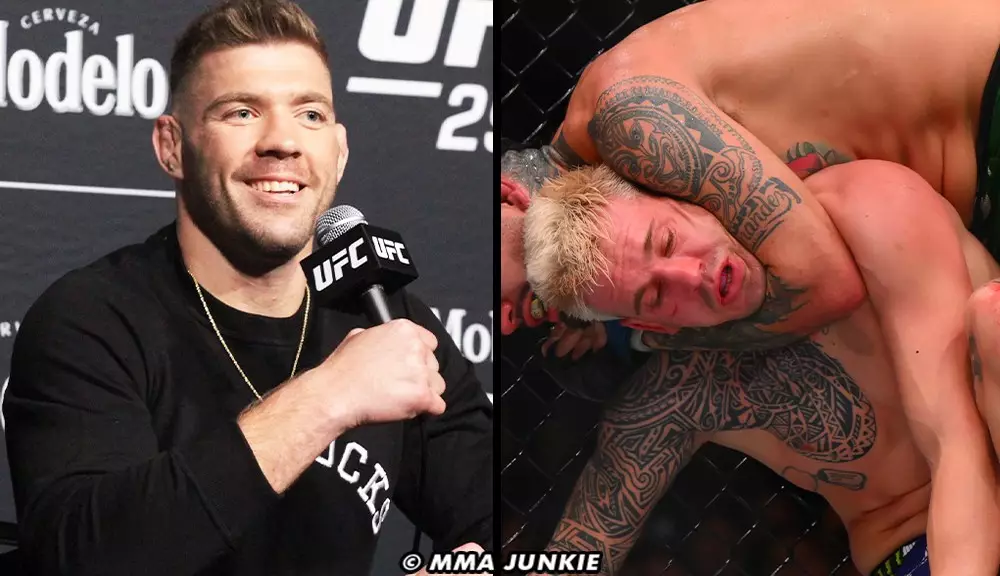The world of mixed martial arts (MMA) is as much about rivalry and personal dynamics as it is about physical competition in the cage. A recent clash between Dricus Du Plessis and Brendan Allen exemplifies this aspect vividly. Just before UFC Fight Night 252, Allen (24-7 MMA, 12-4 UFC) took aim at Du Plessis, the reigning UFC middleweight champion (23-2 MMA, 9-0 UFC). Allen’s criticisms suggested that Du Plessis’s impressive record was more of a façade than a reflection of true skill. This comment sparked a spirited rebuttal from Du Plessis, who took advantage of Allen’s setback and subsequent defeat in the cage against Anthony Hernandez.
The Fallout of Defeat
After suffering a unanimous decision loss to Hernandez—his first professional losing streak—Allen found himself in uncharted territory. The aftermath of the fight saw him grappling not only with the immediate consequences of defeat but also with the taunts of his rival. Allen’s statement post-fight expressed uncertainty about his future, an admission of vulnerability that served as an opening for Du Plessis to emphasize the implications of Allen’s loss. “I don’t know what’s next either,” Du Plessis quipped, “But I can most certainly tell what ain’t next for a very long time.” This remark not only rubbed salt in Allen’s wounds but also underscored the competitive landscape of the middleweight division, where each setback can reverberate throughout a fighter’s career trajectory.
While Allen contemplates his future, Du Plessis is poised for another pivotal matchup likely against rising contender Khamzat Chimaev. This upcoming title fight, where Du Plessis will defend his 185-pound belt, serves as a clear indication of the diverging paths in their careers. Where Allen is now faced with reevaluating his strategy and training regimen, Du Plessis is focused on solidifying his reputation at the top of the division. The pressure is immense, not just to retain his championship status but to silence those who dismiss his accomplishments, just as Allen attempted to do prior to the fight.
Rivalries in sports, particularly in high-stakes environments like the UFC, add layers of narrative that enhance the drama both inside and outside the cage. Du Plessis’s response serves as a reminder of how rivalries can shape a fighter’s public persona while also providing motivation. For Allen, every criticism he directed at Du Plessis only serves to bolster the champion’s resolve. Now, as he navigates through the fallout of his recent losses, Allen’s criticisms ring hollow against the backdrop of his current reality—one where he must rebuild and reassess his strategies for success.
The exchange between Du Plessis and Allen highlights the intricate dance of competition, criticism, and personal growth inherent in the world of MMA. Both fighters find themselves at a crossroads, albeit on very different paths. While Du Plessis climbs the ranks, defending his title and silencing naysayers, Allen must confront the consequences of overextending his bravado. In the end, the sport continues, driven forward by rivalries that not only ignite passions but also foster a cycle of redemption and resilience.

